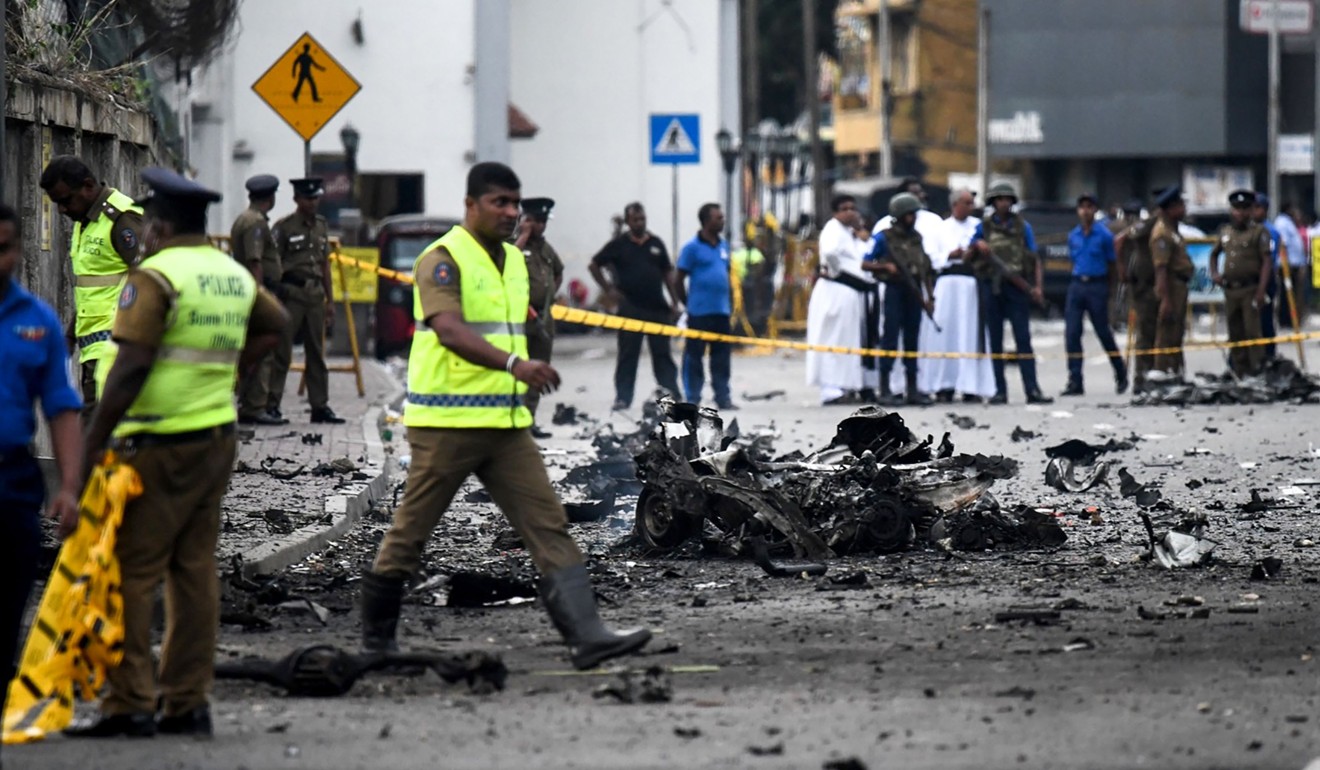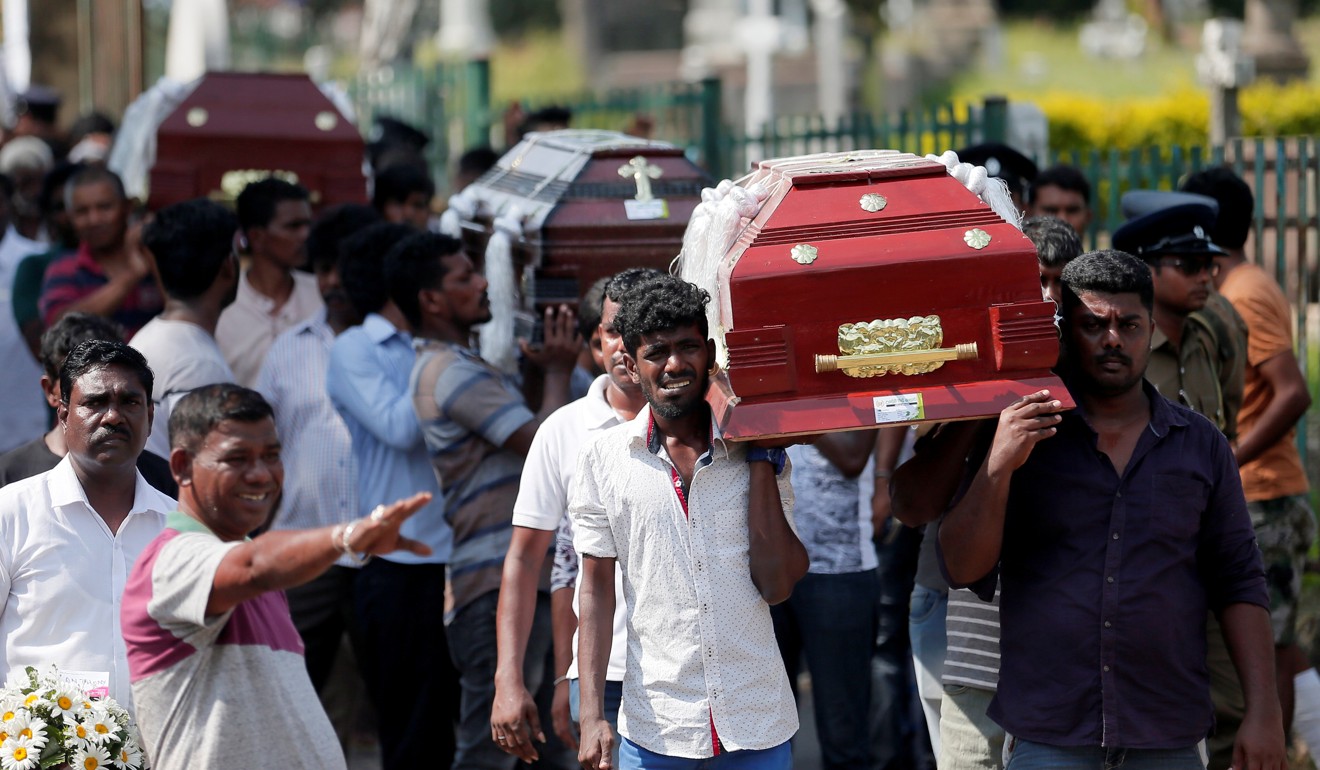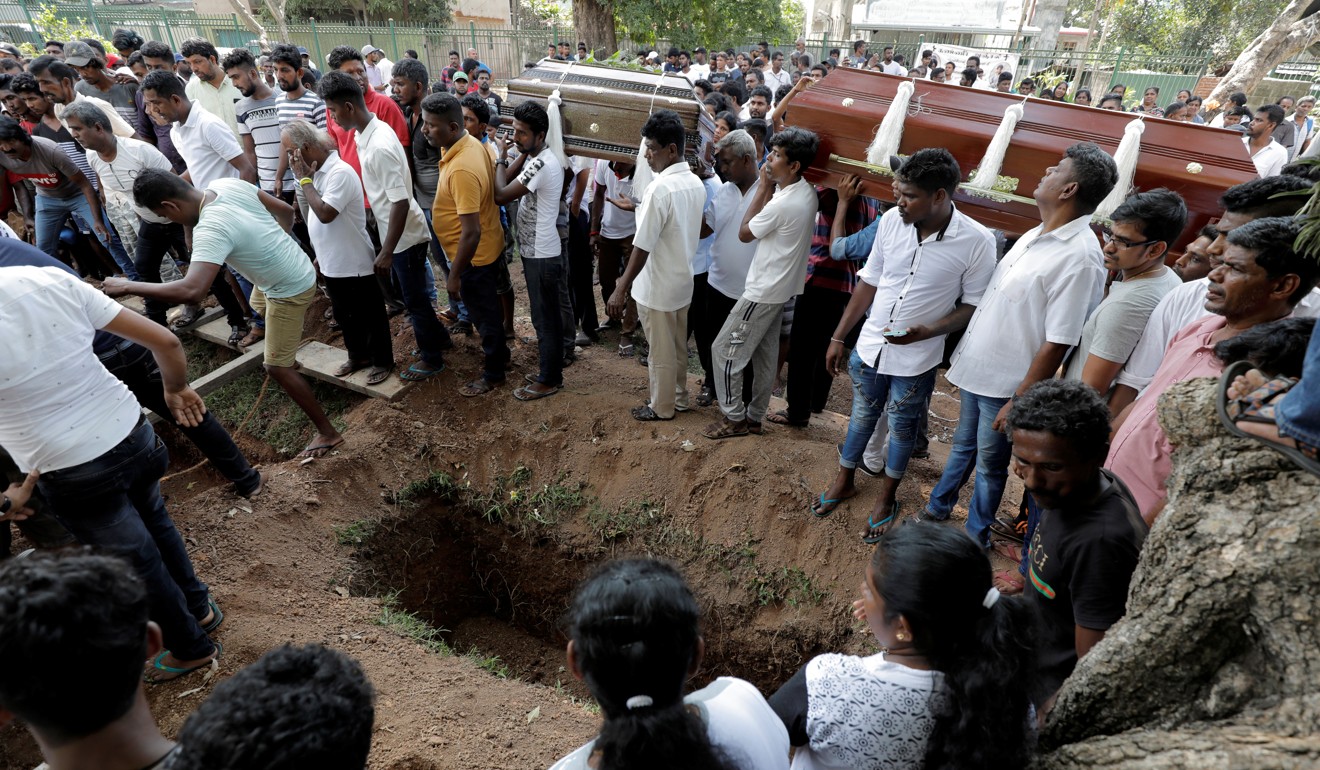
Sri Lanka bombings: investigators probe global terror links as IS claims responsibility and death toll climbs to 321
- President Maithripala Sirisena said intelligence agencies had reported that ‘international organisations [were] behind these acts of local terrorists’
- State Minister of Defence Ruwan Wijewardene said the bombings could have been retaliation for the mosque shootings in New Zealand last month

Interpol has joined the investigation into the devastating series of blasts across Sri Lanka on Sunday that killed 321 people, including at least 45 children, with attention now focused on a second extremist group known as Jamaat-ul-Mujahideen.
In a special session of parliament on Tuesday, State Minister of Defence Ruwan Wijewardene said investigators were examining links between the local jihadist group National Thowheed Jamath and Jamaat-ul-Mujahideen. He also noted that the Easter Sunday bombings could have been retaliation for the terrorist attacks on two mosques in New Zealand last month.

The Interpol team, which includes specialists in crime scene examination, explosives, counterterrorism, disaster victim identification and analysis, will assist authorities with the investigation and identify potential international connections.
In a statement, President Maithripala Sirisena said the country’s intelligence agencies had reported that there were “international organisations behind these acts of local terrorists” and that he would seek foreign help to investigate.
Late on Tuesday, Islamic State claimed responsibility for the attacks in a statement published through its propaganda arm.
A state of emergency was declared across Sri Lanka on Tuesday, giving police and the military sweeping powers to detain suspects without court warrants.
So far 40 people, including a Syrian national, have been arrested in the wake of the atrocity – the worst since a civil war that ended a decade ago and the worst-ever attacks on the country’s small Christian minority, who make up just seven per cent of its population of 21 million.
In addition to the dead, more than 500 were wounded – including five Chinese citizens. Another five are still missing.

A statement posted on the Chinese embassy to Sri Lanka’s website warned citizens not to travel to the South Asian country. Anyone ignoring the warning would have to bear the costs of consular assistance if it was required, it said.
In his address to parliament, Wijewardene said “preliminary investigations have revealed that what happened in Sri Lanka was in retaliation for the attack against Muslims in Christchurch,” referring to the mosque shootings in New Zealand carried out by a right-wing extremist that killed 50 worshippers on March 15. He did not provide evidence or explain the source of the information.
Wijewardene blamed “weakness” within Sri Lanka’s security apparatus for failing to prevent the bombings.
“By now it has been established that the intelligence units were aware of this attack and a group of responsible people were informed about the impending attack,” he said. “However, this information has been circulated among only a few officials.”
National Thowheed Jamath – one the groups named by Wijewardene as being responsible for the attacks – appeared in a security briefing sent to the directors of Sri Lanka’s four security agencies on April 11.
An accompanying intelligence report written in both the local Sinhala language and English, which has circulated widely on social media, said the group was targeting “some important churches” in a suicide terrorist attack that was planned to take place “shortly”. The report named six individuals likely to be involved in the plot and bears the seal of the ministerial security division.

While investigators hunted for the perpetrators, the country fell silent for three minutes on Tuesday as a day of national mourning was held.
Flags were lowered to half mast on government buildings, and people bowed their heads to reflect silently on the violence as the country began to bury the dead.
More than 1,000 mourners gathered at St. Sebastian’s Church in the coastal city of Negombo, just north of the capital, where at least 110 parishioners are thought to have been killed as they worshipped on Sunday morning.
Funerals there had to be conducted in batches because of the number of people killed.
Among the Muslim-minority population there is a palpable sense of fear and apprehension, with many of the city’s Muslim-run businesses closing their doors in the aftermath of Sunday’s killings.
In Colombo, Miftha, a retired Muslim shopkeeper, said many in the community were in denial.
“The Muslims were always pacifist. They never attacked even when they were attacked by the Tamil Tigers during the long years of war,” he said, referring to the country’s three-decade civil war that ended in 2009.
“But now here we are, all of a sudden, the Muslims are in the crosshairs as the aggressors, and in this horrendous attack.”
In some areas, Buddhist monks could be seen visiting churches and expressing solidarity with those who had been the focus of the bombings.
Beneath the sorrow and shock, however, was a sense of anger against the authorities who had not acted upon the intelligence warnings about an imminent attack.
Additional reporting by Zhuang Pinghui, Bloomberg, Reuters, Associated Press and Agence France-Presse